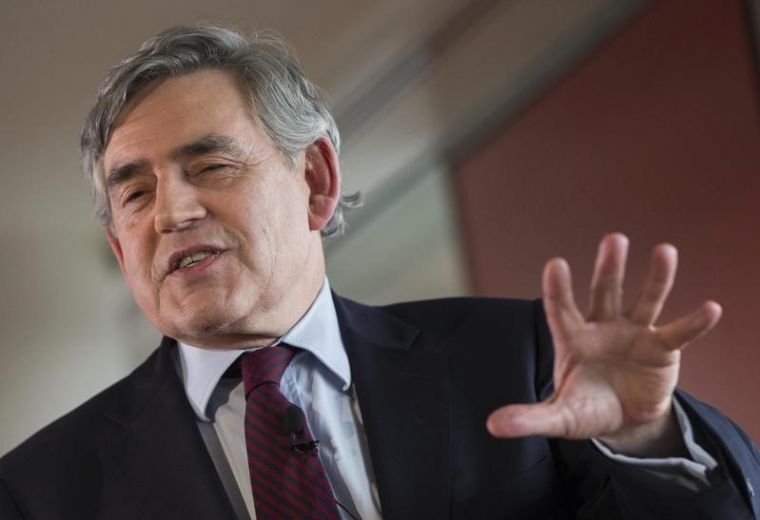An old-fashioned Christian in the Twitter age: Why Gordon Brown was underrated

Gordon Brown's autobiography is not out until next week, and we do not yet know from the current extracts published today by the Mirror how much and even whether he discusses what is his genuinely strong Christian faith (a faith and approach to life shared by his admirable wife, Sarah, by the way).
But there is no doubt that Brown, a 'son of the manse' whose father was a Church of Scotland minister, a collection of whose sermons the then prime minister once gave Pope Benedict XVI, had what he called a 'Presbyterian conscience' and a 'moral compass'.
A year after he lost office in 2011, he gave a fascinating and important lecture at Lambeth Palace under the then Archbishop of Canterbury, Rowan Williams on faith in politics.
Two years previously and while in office, he had insisted, unfashionably, that Britain is still a Christian country.
Brown, in private a deeply emotional man, took faith seriously. But his approach was, as tends to be the way with Presbyterianism, highly reserved.
And some of that comes across in what we have learned is in the new book, My Life, Our Times.
'I wasn't an ideal fit for an age when the personal side of politics had come to the fore,' he writes.
'For me, being conspicuously demonstrative is uncomfortable. Reticence was the rule. I was born about 40 years before the World Wide Web, and arrived in Parliament 20 years before the advent of Twitter.
'During my time as an MP I never mastered the capacity to leave a good impression or sculpt my public image in 140 characters.
'Now no politician can succeed without mastering social media – and yet, in it, the prime minister becomes one among millions of voices competing to be heard.
'The modern version of "connecting" seems to increasingly include a public display of emotion, with the latter – authentic or not – seen as evidence of a sincerity required for political success.
'In a far more touchy-feely era, our leaders speak of public issues in intensely personal ways and assume they can win votes simply by telling their electors that they "feel their pain".
'For me, being conspicuously demonstrative is uncomfortable – to the point that it has taken me years to turn to writing this book.
'I fully understand that in a media-conscious age every politician has to lighten up to get a message across and I accept that, in the second decade of the 21st century, a sense of personal reserve can limit the appeal and rapport of a leader.
'I hope people will come to understand this was not an aloofness or detachment or, I hope, insensitivity or lack of emotional intelligence. To my mind what mattered was not what I said about myself, but simply what our government could do for our country.'
Frankly, I hope so too. For looking at today's offerings, it becomes clear that Gordon Brown is surely the most underrated British politician in modern times. As he claims, he won the battle of the financial crisis but not the war of the general election and the progressive policies that could have been implemented beyond it. This was thanks largely to a highly fashionable assault on his character led by the rightwing press.
At the time, I was in a minority of about three in thinking that the other parties especially the Liberal Democrats should have rallied around him in 2010, and formed a 'rainbow' progressive alliance. That way, for one thing, the Lib Dems would not have committed electoral suicide by siding with a party – the Tories – whose values were diametrically opposed to their own, on the economy, on immigration, on electoral and constitutional reform and, of course, on Europe.
But that is for another day. For now, we should simply be thankful for Gordon Brown, and remorseful for the way we so unjustly vilified him in his day.
'My Life, Our Times' by Gordon Brown will be published by The Bodley Head on Tuesday, November 7.











